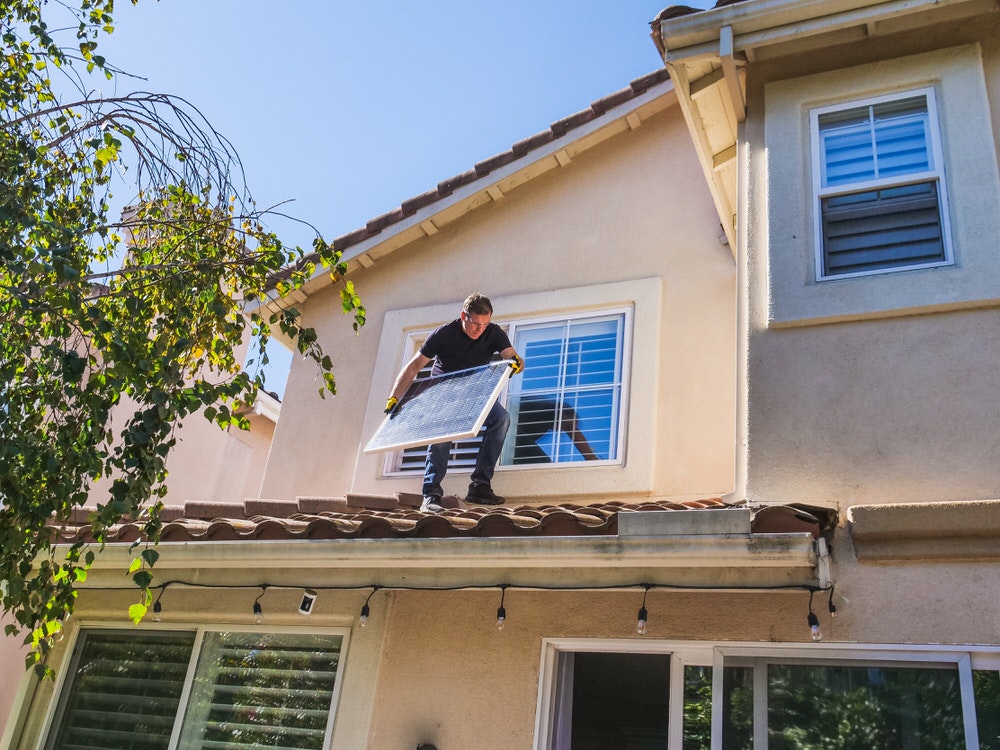As you have likely seen or read, increasing numbers of US homeowners are turning to home solar panels. With conventional energy prices continuing to gradually rise, solar energy is a great way to regain control of your own energy generation. At the same time you can break free from expensive monthly bills – and help make the earth greener to boot!
Read on to find out how to get your home solar panels project up and running.
What are the basics of solar energy?
You do not need to be a professional scientist or technician to consider home solar panels, but it pays to know a few of the basics before you get started. In short, solar power captures sunlight, before turning it into a form of electricity that home appliances and lights can use to function.
This is known as the photovoltaic effect. Although the technology has existed since the 1950s, it is only in recent decades that it has become available to US homeowners. This has been made possible by advances in solar technology to make it more mainstream and suitable for domestic premises.
 It’s not just the panels
It’s not just the panels
Although they are the most prominent feature, solar power systems are much more than just the panels.
A piece of equipment called an inverter converts the energy. Racking is the frame on which the system is neatly mounted. They are designed to be space-efficient and are modular to fit all kinds of requirements.
Solar energy is stored using batteries. However, if your property is on the mains grid, you can have your home solar panels connected to it (known as ‘on-grid’ installation). The best approach with this technical aspect is to search for solar power firms near me. Good companies can help you in every aspect of your project, from finance to technical.
Talking of finance….
You may be a bit put off by the solar panel cost. Before you write off the whole project, consider the many options available to you. Grants, finance deals, loans and even tax credits help make solar installations affordable and appealing to most homeowners’ situations.
Think of your home solar panels as an upfront investment. In return for your outlay, you will make instant savings on your monthly electric bills. Then once your panels are paid off, you will really start to reap the rewards.
Taking it all in
Although solar seems an easy choice on paper, this is not to say that there are important aspects to consider before going ahead.
First, consider how much sunlight your property gets. Your local expert will be best placed to guide you on this, as they will be fully aware of local sunlight exposure. From this, you can then plan how many panels you need and whether to go on-grid or off-grid.
Alongside this, also factor in the cost and size of batteries. These can contribute to the overall solar panel cost. At the same time, they can provide peace of mind that come sun, wind or rain, your home will have the electricity it needs.
